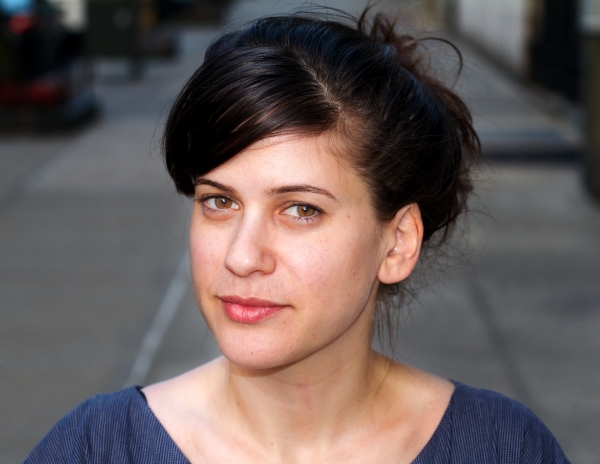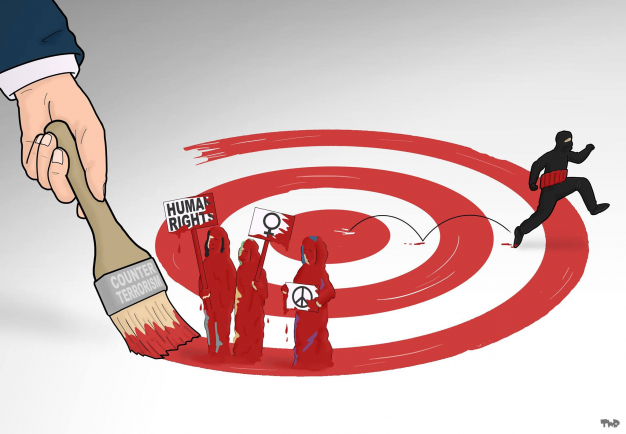During this summer, more than 50 Israeli reservists issued a statement, published in the Washington Post declaring their refusal to be part of the reserves during operation Protective Edge in Gaza. Their statement provides insights on the multi-layered linkages between gender and militarism, and the results of militarization of society. It illustrates the discussions of WPP's Global Consultation on Gender & Militarism last July. We invited Yael Even Or, initiator of the statement, to write a blog for us about what motivated her to initiate this action.
Until 2009, I would occasionally serve on reserve duty in the Israeli army[1]. Only after operation Cast Lead, the Israeli attack on Gaza in 2008-2009, did I begin to question my participation in the military. At first, I wasn’t sure what to make of my own service in the army as I was stationed far from the Palestinian territories occupied in 1967. During my service, which is compulsory for all Israelis, I was part of the recruitment unit, evaluating and screening candidates for military service. When I realized how my work not only contributed to the fighting forces, but also to maintaining and deepening inequalities and oppression within the ranks of the military, I knew there must be others like me.
About 85% of soldiers in the Israeli army serve in administrative and support roles. Many of them believe their work, often routine and banal, is unconnected to the violent results elsewhere. While most Israelis generally support the Occupation, those who don’t often choose desk jobs or find ways to avoid active combat or being stationed within the Occupied Palestinian Territories. A tiny but growing movement for refusal is emerging in Israel, either before conscription, during active duty, or after leaving active duty as part of the reserved forces. When considering refusal, either before, during or after active service, legal options are limited. Army service in Israel is considered non-political and therefore it is not possible to refuse on grounds of conscientious objection if your reasons to refuse are even remotely “political”, especially for non-combat soldiers. I set out to find a way to do so.
Last spring, I approached a few acquaintances I suspected would feel the same and together we reached out to others we thought could relate. We were 55 ex-soldiers, mostly women, who came together to start a movement to raise awareness to the problems ingrained in the Israeli army’s current structure, including the conscription law. We aim to highlight the significant role of soldiers in administrative or non-combat units and positions, in controlling Palestinian lives and perpetuating segregation with in Israeli society.
We drafted a letter in which we explain our views and announced that those among us still eligible for reserve duty (like myself) will no longer take part in any military service. We also stated that we support anyone who resists conscription, especially the “refusniks” (those refusing active duty) and the Ultra Orthodox who were until recently exempt from military service. We call ourselves Lo Meshartot, which is the female Hebrew term for “those who don’t serve” (and also has a double entendre as “not servants”, i.e. maids).
The letter was long in the making, but the murderous military operation in Gaza this summer propelled us to publish it at the end of July. We added a few paragraphs explaining our decision to object to military service specifically at this delicate time, when the rest of Israel vociferously supported the military: “To us, the current military operation and the way militarization affects Israeli society are inseparable. In Israel, war is not merely politics by other means — it replaces politics. Israel is no longer able to think about a solution to a political conflict except in terms of physical might; no wonder it is prone to never-ending cycles of mortal violence. And when the cannons fire, no criticism may be heard”. Our timing triggered particularly harsh responses, but we were also able to create a network for those who resisted the war, some of whom were imprisoned.
In the two months that have passed, twenty more have joined us and signed our letter; 43 ex-soldiers from an elite intelligence unite called “8200”, including a few from our group, have organized to refuse in protest; and 2 members of the 2014 high-school refusers letter are currently imprisoned for their refusal.
More information:
[1] Israel not only has compulsory service for both men and women at the age of 18, but also compulsory reserved service duty to which military veterans are called up according to the needs of the military.
 Yael Even Or was born and raised in Tel Aviv, Israel. She was a soldier and officer in the Israeli army from 2004 to 2007. She has worked as a news editor and reporter for Walla.co.il and co-founded African, a Hebrew news and commentary blog covering Africa and African communities in Israel. She is currently an M.A. in International Affairs candidate with a concentration in Media and Culture at The New School in New York. Her work has appeared in PRI, WNYC, The Forward, Feet In 2 Worlds, and the South African Daily Maverick. She's a contributor to Africa is a Country and to Local Call, the Hebrew edition of +972 Magazine.
Yael Even Or was born and raised in Tel Aviv, Israel. She was a soldier and officer in the Israeli army from 2004 to 2007. She has worked as a news editor and reporter for Walla.co.il and co-founded African, a Hebrew news and commentary blog covering Africa and African communities in Israel. She is currently an M.A. in International Affairs candidate with a concentration in Media and Culture at The New School in New York. Her work has appeared in PRI, WNYC, The Forward, Feet In 2 Worlds, and the South African Daily Maverick. She's a contributor to Africa is a Country and to Local Call, the Hebrew edition of +972 Magazine.
11 Dec '17 This month WPP staff interviewed Arbia Jebali and Sarah Chamekh from Free Sight Association in Tunisia about the work their organization does, how civil society space has changed over the years, which challenges they are facing now, and how civil society in Tunisia is organizing itself to overcome those challenges.
7 Nov '17 In this article, WPP staff interviewed Doron Joles of XminY Fund, an activist organization that supports social movements, action groups and changemakers fighting for a fair, democratic, sustainable and accepting world. He discusses the unique way they have chosen to hand out funds, and the challenges that go along with funding small activist organizations in the current global climate.

25 Oct '17 This Friday, the UNSCR 1325 Open Debate will take place once again, seventeen years since the adoption of landmark UN Security Council Resolution 1325 on Women, Peace and Security. In this article WPP staff reflects on the progress made for a truly transformative feminist peace agenda until now.
